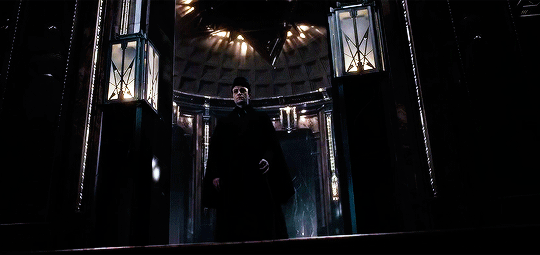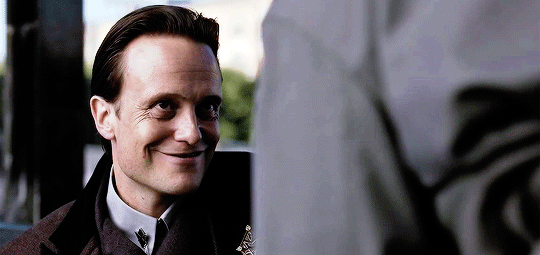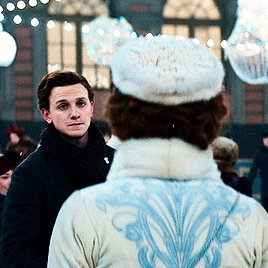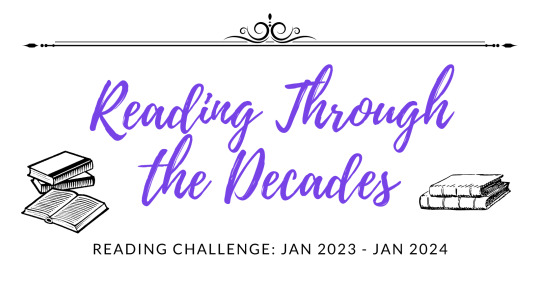#michael lockshin
Explore tagged Tumblr posts
Text
New Russian Movie Release: The Silver Skates
New Russian Movie Release: The Silver Skates
Movie: The Silver Skates Release: December 3rd, 2020 Genre: Love Story Director: Michael Lockshin
Cast: Fedor Fedotov, Sonia Priss, Aleksei Guskov, Yuri Kolokolnikov, Severija Janusauskaite, Kirill Zaytsev, Yuri Borisov, Aleksandra Revenko, Timofey Tribuntsev, Sergey Koltakov
Source: https://en.m.wikipedia.org/wiki/List_of_Russian_films_of_2020
View On WordPress
#Aleksandra Revenko#Aleksei Guskov#blogging#Fedor Fedotov#film#films#internet#King-Galaxius#King-Galaxius Stravinsky#Kirill Zaytsev#love story#Michael Lockshin#movie#movies#new film release#New Russian Movie Release: The Silver Skates#Sergey Koltakov#Severija Janusauskaite#Sonia Priss#The Silver Skates#Timofey Tribuntsev#wordpress#Yuri Borisov#Yuri Kolokolnikov
1 note
·
View note
Photo





August Diehl as Woland in WOLAND (2023) dir. Michael Lockshin
#woland#filmedit#movieedit#perioddramaedit#august diehl#the master and margarita#dailyworldcinema#wolandedit#period drama#edits
408 notes
·
View notes
Photo






Silver Skates | Серебряные коньки (2020) dir. Michael Lockshin
#silver skates#серебряные коньки#mikhail lokshin#2020s#filmedit#ours#filmgifs#moviegifs#doyouevenfilm#perioddramaedit#perioddramasource#cinematv#chewieblog#fyeahmovies#supervalcsi#userkraina#periodedit
995 notes
·
View notes
Photo







The Silver Skates / Серебряные коньки (2020) | dir. Michael Lockshin
#Серебряные коньк#the silver skates#russia#bblecher#userkino#tvfilmsource#dailytvfilmgifs#cinemapix#cinematv#chewieblog#userthing#useroptional#dailyflicks#filmedit#userjack#usersamanne#worldcinemaedit#2020s#by réka
619 notes
·
View notes
Photo








The Silver Skates, Серебряные коньки 2020 | dir. Michael Lockshin
#filmgifs#filmtv#moviegifs#perioddramaedit#the silver skates#periodedit#perioddramacentral#perioddramasource#weloveperioddrama#onlyperioddramas#dailytvfilmgifs#tvandfilm#dailyflicks#romancegifs#chewieblog#sorry for the horrible quality its only version available but i wanted to gif#by leah
539 notes
·
View notes
Text

January 2023: 1900s (+ pre-1900s)
It’s January 1st, which means that I’m kicking off my 2023 reading challenge, Reading Through the Decades! You can read more about the challenge on my previous post. Basically, it’s a year-long reading challenge where we read books (and explore other media) from the 1900s to the 2020s, decade-by-decade.
In January, we’re starting off with the 1900s (1900-1909). I’m also looking at things from the late 1800s and just generally around the turn of the century.
Here are my recommendations for January (all I’ve greatly enjoyed previously!):
📺 Granada Sherlock Holmes (1984-1994) 📖 The Turn of the Screw (1898), Henry James 🎬 Colette (2018), dir. Wash Westmoreland 📖 Три сестры (1901; Three Sisters), Anton Chekhov 📖 A Room with a View (1908), E.M. Forster 📖 Le Fantôme de l'Opéra (1909-1910; The Phantom of the Opera), Gaston Leroux
And here is what I myself am planning to spend time with this month:
📖 The Complete Sherlock Holmes (1887-1927), by Arthur Conan Doyle 🎬 Journal d'une femme de chambre (2015; Diary of a Chambermaid), dir. Benoît Jacquot 🎬 Miss Marx (2020), dir. Susanna Nicchiarelli 📖 Gloriana; or, The Revolution of 1900 (1890), Florence Dixie 🎬 Tesla (2020), dir. Michael Almereyda 📖 Heart of Darkness (1899), Joseph Conrad 🎬 Сере́бряные коньки́ (2020; Silver Skates), dir. Michael Lockshin 📺 The Nevers (2021-) 📺 Picnic at Hanging Rock (2018) 📖 Imre: A Memorandum (1906), Edward Prime-Stevenson 📖 גאט פון נקמה (1907; The God of Vengeance), Sholem Asch 📖 The Longest Journey (1907), E.M. Forster 📖 Рассказ о семи повешенных (1908; The Seven Who Were Hanged), Leonid Andreyev 📖 Emily of New Moon series (1923-1927), L.M. Montgomery (the series is set in the late 1800s/early 1900s)
#reading through the decades#booklr#litblr#reading challenge#reading#books#bookish#i'm so very excited to start this challenge!
18 notes
·
View notes
Text
Cidade de gelo | Filme
Ontem assisti um filme muito interessante, digirido por Michael Lockshin e escrito por Roman Kantor, chamado "The Silver Skates", ou "Cidade de gelo", em português. É um lançamento Russo da Netflix e foi muito gostosinho de assistir. Além de ter influência de outras histórias como "Romeu e Julieta" e "Tristão e Isolda", ele também parece ser inspirado por um livro de Mary Mapes Dogde, que possui um nome parecido: "Hans Brinker; or, The Silver Skates". Livro bem caro, por sinal.
É um bom filme de romance e nessa questão, é bem parecido com outros. Mas além daquele clima de drama clichê de todos os filmes, também foram colocadas, de forma muito inteligente, diversas questões políticas que chamam muito atenção e trazem um ar "a mais" na trama. Ele ocorre em São Petersburgo, de 1899. Então se passa nessa virada do final do século XIX e início do século XX.
Os cenários também são incríveis, lindos demais! Parece que a maioria deles realmente foram gravados nesses famosos pontos da Rússia, realmente existem. E todo aquele gelo, meu deus, que coisa linda. Os cenários e os figurinos são minhas partes favoritas. Além disso, eu fiquei sabendo que todas as jóias do filme eram reais, foram todas alugadas!!!! E os patins, os trenós e tudo mais, foram feitos especialmente para o filme! Meu deus, isso é muito incrível, realmente.
Sério, eu adorei aquele filme e preciso comentar que desde o começo, com todo aquele clima natalino, esperei brilhinhos dourados da magia do natal. E mesmo não tendo papai noel, poderes, luzes centilantes e pessoas voando, o filme parece mágico o tempo inteiro. O patins do protagonista, Matvey, é dito como mágico em certo momento e fiquei esperando ansiosamente esse poder que, pra minha surpresa, acontece!!!!! Sério, é mágico. Mesmo sem brilhos dourados, o final me deixou muito feliz.
Não sei se alguém vai realmente ler isso, mas se estiver aqui, assista esse filme! Eu adorei e mesmo tendo umas duas horas, passa super rápido. Recomendo muito para quem estiver no tédio. Eu assisti pela Netflix, mas talvez tenha online para quem quiser. E, se puder, procure legendado para ver, é interessante assistir o filme em Russo, mesmo não entendendo uma palavra.
@leitedeamendoas

#cidade de gelo#the silver skates#netflix#filmes#resenha#filmes e séries#critica#cinema#movies#romance#drama#clichê
37 notes
·
View notes
Text
Michael Jordan's First Direct Fintech Investment Is In Estate Planning
Steve Lockshin's estate planning tech firm Vanilla landed an investment from NBA legend Michael Jordan. Here's the opportunity he saw. from Wealth Management https://ift.tt/3uarJlh
0 notes
Text
ODA A MERCURIO
Una película ideal para una tarde invernal es PATINES DE PLATA, protagonizada por Fedor Fedotov, Sonya Priss y Yury Borisov, bajo dirección de Michael Lockshin.
Si bien la historia romantiza la delincuencia, no deja de señalar con mucha verdad las obscenas diferencias de clase en la Rusia del Zar. Pero, igual, el cuento no es ese.
Un patinador super veloz se convierte en ladrón y se enamora de una damita de la nobleza que reniega del matrimonio al que la destinaron, porque ella quiere estudiar. Todo se desarrolla en una San Petesburgo nevada, entre fiestas en palacios y en el arrabal.
Velocidad, habilidad manual, robos, inteligencia, magia y engaño, estudio, comercio, política y diplomacia, ciencia y medicina... Todos son campos de protección del mismo dios: Mercurio, regente de Géminis y de Virgo. En la película, hay conocimientos muy claros de Astrología. En medio de una escena (por cierto, todas son altamente estéticas), Géminis es reverenciado. Virgo no es nombrado, pero está en ella (me refiero a la protagonista y a la película).
PATINES DE PLATA es una apuesta segura para pasar un momento hermoso, que hasta último momento los va a mantener viviendo un vértigo emocional. Y los va a hacer pensar.
Flavia Vecellio Reane.
Junio 27, 2021.
@FlaVecellio

0 notes
Photo



Yulia Snigir as Margarita Nikolaevna in WOLAND (2023) dir. Michael Lockshin
#woland#the master and margarita#filmedit#movieedit#perioddramaedit#dailyworldcinema#wolandedit#period drama#edits
360 notes
·
View notes
Photo

"I never found the courage to swim against the current. But you do not live by somebody's rules. Live by your own. Sometimes, the hardest decisions are the simplest ones to make." The Silver Skates (2020) Directed by Michael Lockshin. _______________________________________ #gameofthrones #got #daenerystargaryen #jonsnow #emiliaclarke #aryastark #sansastark #hbo #targaryen #sophieturner #daenerys #gameofthronesmemes #gameofthronesseason #asongoficeandfire #khaleesi #winteriscoming #tyrionlannister #stark #gameofthronesedit #kitharington #cerseilannister #maisiewilliams #housestark #motherofdragons #lannister #winterfell #dmtalkies #westeros #jaimelannister #digitalmafiatalkies ____________________________________________ https://www.instagram.com/p/CQT18Z2r1iQ/?utm_medium=tumblr
#gameofthrones#got#daenerystargaryen#jonsnow#emiliaclarke#aryastark#sansastark#hbo#targaryen#sophieturner#daenerys#gameofthronesmemes#gameofthronesseason#asongoficeandfire#khaleesi#winteriscoming#tyrionlannister#stark#gameofthronesedit#kitharington#cerseilannister#maisiewilliams#housestark#motherofdragons#lannister#winterfell#dmtalkies#westeros#jaimelannister#digitalmafiatalkies
0 notes
Text
Pregnancy Outcomes in Lupus Patients Have Improved

MedicalResearch.com Interview with: Dr. Mehta Bella Mehta, MBBS, MS Assistant Attending Physician, Hospital for Special Surgery Instructor, Weill Cornell Medical College MedicalResearch.com: What is the background for this study? What are the main findings? Response: For women with lupus, pregnancy has long been considered high-risk and associated with both medical and obstetric complications. In the 1960s and 1970s, pregnancy was thought to be contraindicated in lupus patients. Beginning in the 1980s, and especially in the 1990s, many studies identified specific risk factors for pregnancy complications and proposed best-practice management guidelines. We wished to see whether these advances improved pregnancy outcomes for lupus patients. Our study showed a decline in maternal mortality and other outcomes in lupus patients. The improvement in pregnancy outcomes was observed more so in lupus patients than those without lupus. MedicalResearch.com: What should readers take away from your report? Response: I think the biggest take home point is that more lupus patients are attempting pregnancies in the past two decades and that they are successfully delivering. Also, the risks of poor outcomes are decreasing over time with new medications, guidelines etc. MedicalResearch.com: What recommendations do you have for future research as a result of this work? Response: The study shows that pregnancy outcomes in lupus patients have improved, however they are still worse than non-lupus patients. Thus, further research needs to be done to improve outcomes, and put into guidelines for diagnosis and management like the American College of Rheumatology Reproductive Health Guidelines. I have no disclosures. Citation: Trends in Maternal and Fetal Outcomes Among Pregnant Women With Systemic Lupus Erythematosus in the United States: A Cross-sectional Analysis Bella Mehta, MBBS, MS *; Yiming Luo, MD *; Jiehui Xu, MPH; Lisa Sammaritano, MD; Jane Salmon, MD; Michael Lockshin, MD; Susan Goodman, MD; Said Ibrahim, MD, MPH Ann Intern Med. 2019. DOI: 10.7326/M19-0120 2019 American College of Physicians https://annals.org/aim/article-abstract/2737824/trends-maternal-fetal-outcomes-among-pregnant-women-systemic-lupus-erythematosus The information on MedicalResearch.com is provided for educational purposes only, and is in no way intended to diagnose, cure, or treat any medical or other condition. Always seek the advice of your physician or other qualified health and ask your doctor any questions you may have regarding a medical condition. In addition to all other limitations and disclaimers in this agreement, service provider and its third party providers disclaim any liability or loss in connection with the content provided on this website. Read the full article
0 notes
Photo

Last Copies! Tunica (Issue 3) / Available at draw-down.myshopify.com / Each issue of Tunica magazine features a mix of artists, musicians, and designers. Though they work in different media, each contributor pushes the boundaries of their chosen field, refusing to accept conventional notions of taste. Issue 3 features contributions from Anna Eborn, Anna Sörenson, Barney Bubbles, Cahill Wessel, Charlie Engman, Chen & Kai, Cheyco Leidmann, Colby Poster & Christopher Michlig, Cristina Guadalupe, E.S.P. TV, Evan Robarts, Gavin Russom & Chris Hontos, Kayla Guthrie, Labor Magazine, Larissa Lockshin, La Cote Du Design, Liza St. James, Long Distance Poison, Mathieu Laurent, Megaforce, Memphis Group, Michael Willis, Mike Diana & Heather Benjamin, Nick Von Woert, Roberto Piqueras, Ryan De La Hoz, Sebastian Hoyos, Sigrid Calon, The Office of Culture and Design, The Rodina, Tiger Moody, Wah Wah Records. Guest editor: Karen Schaupeter / ED Varie. Designed by Studio Lin #tunica #graphicdesign #typography #magazine #ColbyPoster
11 notes
·
View notes
Text
Dictatorship USA – A Personal History – Part 49A
How the Soviet Union saved Arnold Lockshin's life... (5)
Black Lives Matter Activists Are Dying and No One is Talking About It
Femestella, March 28, 2019
On March 23, the body of social justice activist Amber Evans was pulled from the Scioto River in Ohio. She had been missing since January 28, 2019.
Evans was well known in the city and was active in the community and social justice organizations. Her main involvement was with the People’s Justice Project; an organization that works to “confront police violence, end mass incarceration, and promote safety and health in our communities.”
On January 28, Amber went to work as normal and was last seen by coworkers at 5:30 pm. However, later that evening, her car and phone were found on different ends of the Scioto Mile.
Besides black social justice websites and Ohio news outlets, the death of Evans hasn’t exactly made national headlines.
Almost five years ago, 18-year-old Michael Brown, an unarmed black man, was shot and killed by a white police officer in Ferguson, Missouri. The officer was found not guilty, which caused protests, riots, and the start of the “hands up don’t shoot” movement. In these five years, six men, who like Evans were active members in the community and a part of the Ferguson protests have died. One by one.
The most recent death to come out of Ferguson was that of protestor Bassem Masri (31 years old) in November. The Palestinian American was found on a bus and his cause of death was a heart attack. The activist was known in the community for live-streaming protests and demonstrations throughout Ferguson.
In 2014, a few months after the grand jury decided not to prosecute Brown’s killer, the body of Deandre Joshua (20 years old) was found in his car just blocks from the protest site. He was shot in the head and his car was burned. Two years later, Darren Seals (29 years old) was also shot and found inside a burning car.
And then there’s MarShawn McCarrell (27 years old) and Edward Crawford Jr. (27 years old), who both died by apparent suicides from gunshot wounds. Another activist, Danye Jones (24 years old) was found hanging from a tree outside his house. The police have also ruled it death by suicide but his mother is convinced her son was lynched.
Since Brown’s death, the relationship between activists and the police have only gotten more intense. So, while the police are still investigating, it’s safe to say that these deaths might not be at the top of the department’s list. Cori Bush, the leader of many Ferguson protests, said that activists have been targets of threats and intimidation.
“I’ve been vocal about things that I’ve experienced and still experience. The harassment, the intimidation, the death threats, and death attempts.”
She also claimed that she’s been shot at and has been run off the road multiple times.
The killing of activists who have a message of making the world a better place is nothing new. Something is going on, specifically with the Black Lives Matter community, that no one is talking about.
//////////////////////////////////////
Перед нами - коварный и опасный мошенник, расист, лжец и фашист Дональд Трамп, порочный Конгресс, нацистские ФБР - ЦРУ, кровавые милитаристы США и НАТО >>> а также и лживые, вредоносные американские СМ»И».
Нынешние киевские власти — фашистские агенты американского империализма... Именно то, чего хотят Трамр/ США и в Венесуэле!
/////////////////////////////////////////////
Правительство США жестоко нарушало мои права человека при проведении кампании террора, которая заставила меня покинуть свою родину и получить политическое убежище в СССР. См. книгу «Безмолвный террор — История политических гонений на семью в США» - "Silent Terror: One family's history of political persecution in the United States» - http://arnoldlockshin.wordpress.com
Правительство США еще нарушает мои права, в течении 15 лет отказывается от выплаты причитающейся мне пенсии по старости. Властители США воруют пенсию!!
ФСБ - Федеральная служба «безопасности» России - вслед за позорным, предавшим страну предшественником КГБ, мерзко выполняет приказы секретного, кровавого хозяина (boss) - американского ЦРУ (CIA). Среди таких «задач» - мне запретить выступать в СМИ и не пропускать отправленных мне комментариев. А это далеко не всё...
Арнольд Локшин, политэмигрант из США
BANNED – ЗАПРЕЩЕНО!!
ЦРУ - ФСБ забанили все мои посты, комментарии в Вконтакте, в Макспарке, в Facebook (“a dangerous account �� your post goes against our Community Standards so only you can see it”), в Medium.com... и удаляют ещё много других моих постов!
… а также блокируют мой доступ к таким сайтам, как «Портал Госуслуги Москва»!
0 notes
Text

Michael Lockshin - The Master and Margarita (2024)
#film#Michael Lockshin#Maxim Zhukov#the master and margarita#August Diehl#mikhail bulgakov#goethe#2024
24 notes
·
View notes